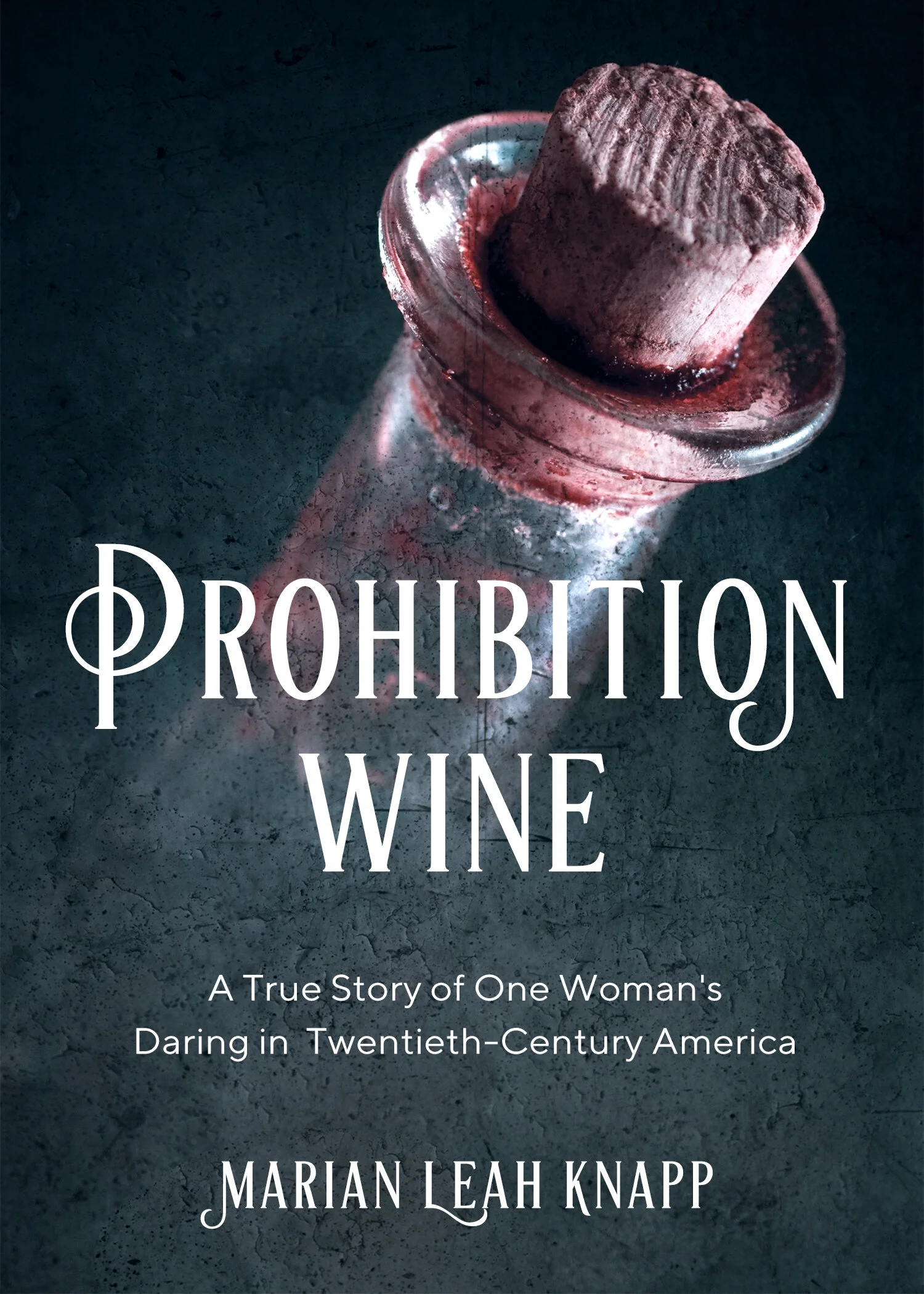Prohibition Wine
Book Feature - Prohibition Wine: A True Story of One Woman’s Daring in Twentieth-Century America by Marian Leah Knapp
HBL Note: You know the title alone hooked me, but then I found out that the story is of the author’s own grandmother and there was no way I was NOT going to feature this book. Although Marian Leah Knapp’s grandmother died when Marian was quite young, she grew up hearing stories about her that ultimately led to Marian wanting to fill in the gaps of the story and write a book about her. This book would be especially appealing to lovers of historical fiction and court dramas. If you read and loved The Trial of Lizzie Borden by Cara Robertson or The Boston Girl by Anita Diamant, then you’ll love Prohibition Wine by Marian Leah Knapp (and if you haven’t read those books, then now you have three books to add to your to-read pile. ha!) Scroll down to read more.
Book Feature - Prohibition Wine: A True Story of One Woman’s Daring in Twentieth-Century America by Marian Leah Knapp
Book Feature - Prohibition Wine: A True Story of One Woman’s Daring in Twentieth-Century America by Marian Leah Knapp
From the publisher:
In 1918, Rebecca Goldberg—a Jewish immigrant from the Russian Empire living in rural Wilmington, Massachusetts―lost her husband, Nathan, to a railroad accident, a tragedy that left her alone with six children to raise. To support the family after Nathan’s death, Rebecca continued work she’d done for years: keeping chickens. Once or twice a week, with a suitcase full of fresh eggs in one hand and a child in the other, she delivered her product to relatives and friends in and around Boston.
Then, in 1920―right at the start of Prohibition―one of Rebecca’s customers suggested that she start selling alcoholic beverages in addition to her eggs to add to her meagre income. He would provide his homemade raw alcohol; Rebecca would turn it into something drinkable and sell it to new customers in Wilmington. Desperate to feed her family and keep them together, and determined to make sure her kids would all graduate from high school, Rebecca agreed―making herself a wary participant in the illegal alcohol trade.
Rebecca’s business grew slowly and surreptitiously until 1925, when she was caught and summoned to appear before a judge. Fortunately for her, the chief of police was one of her customers, and when he spoke highly of her character before the court, all charges were dropped. Her case made headline news―and she made history.
Book Feature - Prohibition Wine: A True Story of One Woman’s Daring in Twentieth-Century America by Marian Leah Knapp







